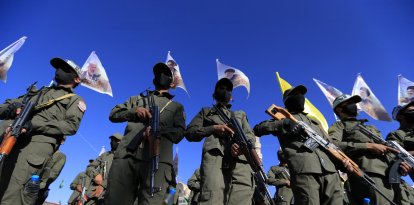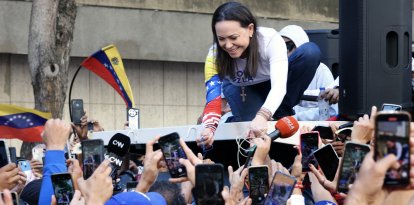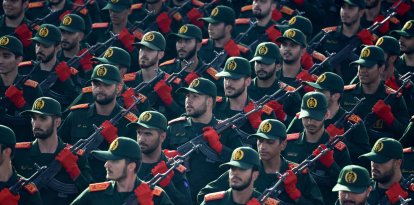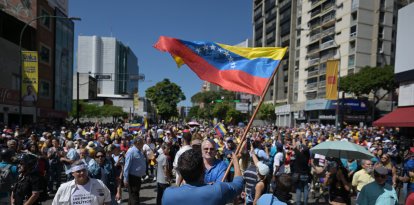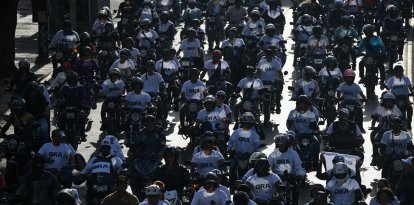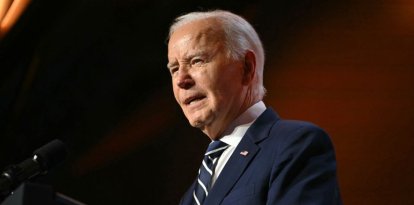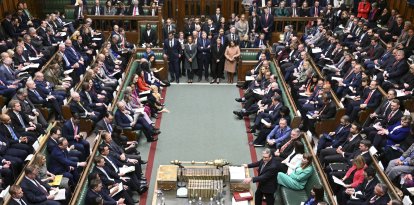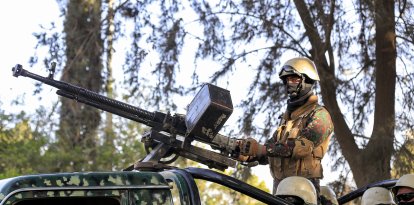The Argentine left fails completely in its first attempt to paralyze the country
The most influential unions in the country called for a strike on Wednesday, January 24, with the intention of fighting the new government's measures in the streets. However, the disruption was far less than expected.
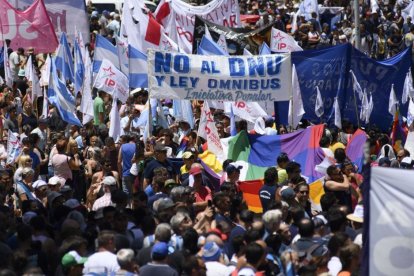
(
In Argentina, when the unions and the most vulnerable sectors want to express their discontent against the government in power, they usually organize something known as a 'general strike,' which consists of the main unions in the country carrying out a joint strike and marching in the streets cutting off traffic. Theoretically, the country should be "paralyzed," like a soccer stadium facing a badly awarded penalty.
At the same time, it is a tool that serves as a thermometer to evaluate the degree of sympathy the union leadership has with the current president. For example, former President Alberto Fernández did not receive a single unemployment benefit even though his administration ended with triple-digit annual inflation.
On this occasion, the General Confederation of Labor (CGT), known as the most important and influential union center in the country, called for a general strike on Wednesday, January 24, to protest the liberal policies of Javier Milei, who has only been leading the country for a month and a half.
The leadership of the CGT, made up of Hector Daer (Argentine Health Workers Association), Carlos Acuna (Union of Service Station Workers and Employees) and Pablo Moyano (Truckers Union), expected a massive call to protest mainly against the mega deregulatory decree implemented by Milei, with millions of people on the streets and a feeling of frustration that reached even the presidential office itself. However, what ended up happening was somewhat different.
"A complete failure"
For Luis Brandoni, actor and Parlasur legislator, the strike already showed weakness before it began. "It's the only one I know, and I've known many, that starts at 12 noon. It's strange, isn't it?" he declared just a few days before the event.
Brandoni referred to the duration because strikes usually begin early in the morning. Still, this one was scheduled for noon, and with public transport running until the afternoon, something atypical for this type of event. At the same time, mass strikes are usually characterized by living up to their name and leaving a desolate image in the streets, practically without activity.
In Argentina, there is a very big fetish with calls, which are often used to measure the success of things, no matter how important it is. Just as soccer fans attack each other for not filling the stadium, here the unit of measurement was the streets, which were thought to explode throughout the country.
Although many people actually came out to demonstrate, the turnout was much smaller than expected, and the type of people who attended was not what was expected either. What does the latter mean? Most participants were union members and political leaders, not genuine citizens angry with Milei's measures, given that the vast majority continued working. Indeed, the phrase "I don't stop" was a trend on social media for much of the day.
This was understood by the Minister of Security, Patricia Bullrich, who celebrated the low participation throughout the day. "Of 21 million workers, only 0.19% mobilized, if we consider La Cámpora and social organizations among the workers. 40 thousand people. Total failure", she expressed on her X account, formerly known as Twitter, where she also attached a video highlighting many open businesses.
Santiago Oria, who recently spoke with Voz Media, expressed himself along the same lines on his social media. "The 'strike' was a failure. What was mobilized was a political apparatus, not the workers. What was heard was a couple of candidates who lost the elections saying delirious phrases without any meaning or connection with reality such as 'the homeland It's not for sale,'" he said.
"Normal life"
In the City of Buenos Aires (CABA), the adhesion among small and medium-sized companies was only 3.6%, as revealed by the Federation of Commerce and Industry of the City of Buenos Aires (FECOBA).
"What we have detected is a strong need to open to sell. The economic impact on the SME sector is so great that there is no room to close for a day. The merchants who could, opened and served the public," explained Fabián Castillo, president of FECOBA.
Camila Castelli, Saavedra's neighbor in CABA, spoke with Voz Media and highlighted that she was able to lead a "normal life" despite the strike, given that businesses opened and that she was able to leave work early to avoid delays with transportation in the evening.
A similar scenario was experienced in some provinces, for example, in Córdoba, Mendoza, Entre Ríos and San Luis, among others.
The economic cost of the national strike
Aldo Abram, a prominent local economist and director of the Freedom and Progress Foundation, estimated that the cost of the strike to the economy was approximately $1.5 billion, the same as 0.2% of GDP.
Regarding the event in general, he stressed that it was about the unions and not those they represented. "Here there is no defense of workers' rights, but of the union members' fund," he explained.















